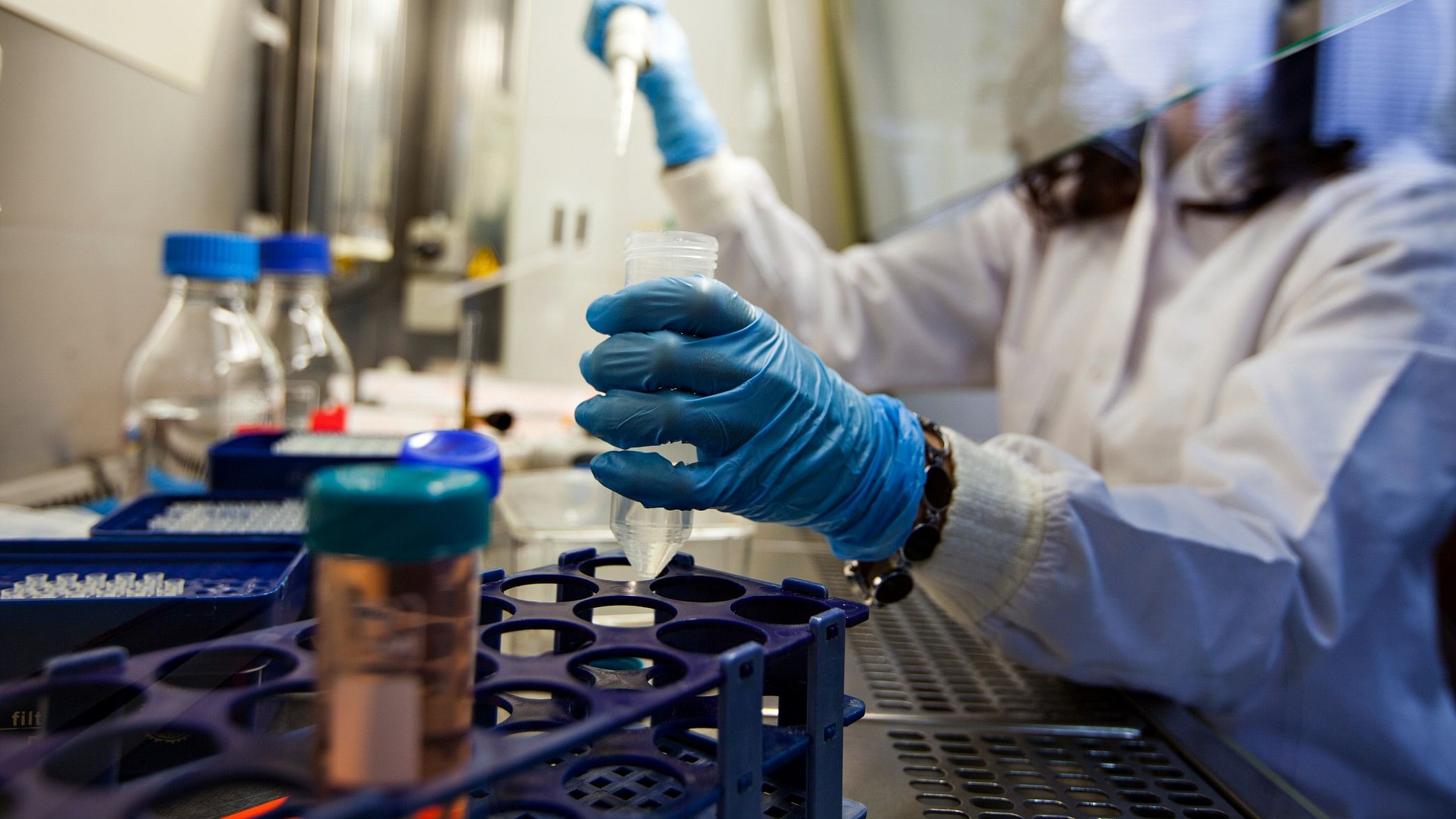
Representative image of a lab testing.
Credit: iStock Photo
While the Kyasanur Forest Disease (KFD) season is set to start in October, lack of accreditation for the Virus Diagnostics Lab (VLD) in Shivamogga is delaying surveillance.
As per the Centre’s Department of Biotechnology, KFD is categorised as a risk group-3 virus, which requires a sophisticated BSL-3 lab to handle live virus samples. KFD has no vaccination or specific treatment, and the fatality rate is between 3 and 5%.
During the last major outbreak in 2019, 434 people were infected and 15 had died. Five deaths were recorded in 2020, and two in 2022.
VLD, set up in the 1970s, is the state’s lone dedicated lab for KFD surveillance. But in the absence of accreditation, the lab does not test samples from ticks and monkeys through which KFD is transmitted to humans. “With the KFD season about to start, tick surveillance is the main surveillance mechanism. Currently the lab accepts tick samples from other districts and sends them to National Institute of Virology, Pune,” says a KFD researcher.
According to a source connected with the lab, the sample results from NIV take anywhere from 10 days to two months to come back. “By this time, the disease would spread among people. In areas like Thirthahalli, people collect dry leaves from forests regularly, and are likely to get infected quickly through ticks. In 2021 and 2022, the turnaround time for some samples from NIV was over six months,” the KFD researcher says.
Tick surveillance is meant to give sample results within 48 hours, that would help officials map and monitor high-risk areas and alert the public. But this is not possible currently.
In 2022, VDL briefly attempted tick surveillance using virus-inactivated samples with a turnaround time of 48 hours, but this was stopped quickly.
In 2019, the state government had set aside a budget of Rs 15 crore and set up a committee to prepare the Detailed Project Report for upgrading VDL to a BSL-3 facility, but the project never took off. There have been no further efforts for lab upgradation.